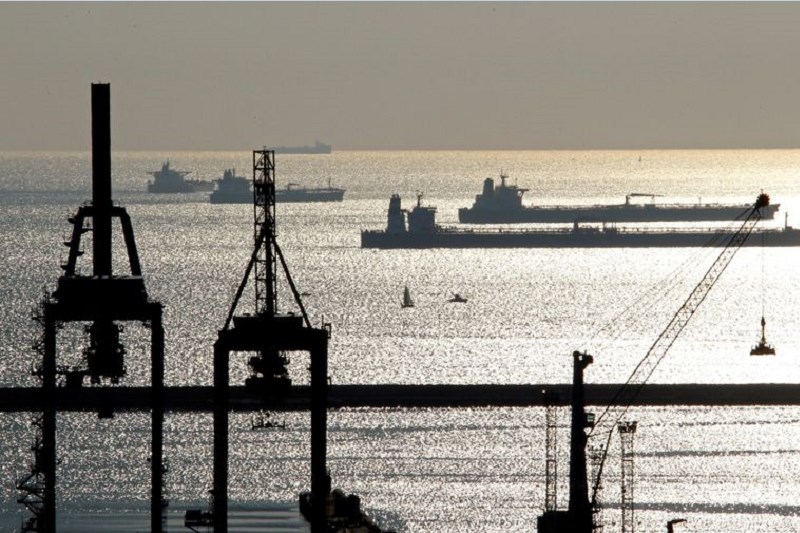© Reuters. FILE PHOTO: The regional office of Russian oil firm Rosneft is seen in the far-eastern city of Yuzhno-Sakhalinsk on Sakhalin Island October 11, 2006. REUTERS/Sergei Karpukhin (RUSSIA)/File Photo
MOSCOW (Reuters) – * This content was produced in Russia where the lawrestricts coverage of Russian military operations in Ukraine
More than a dozen tankers loaded with 10 million barrels of Russia’s Sokol grade have been stranded off the coast of South Korea for weeks, so far unsold due to U.S. sanctions and payment issues, according to two traders and ship tracking data.
The volumes, equating to 1.3 million metric tons, represent more than a month’s production of the Sakhalin-1 project, once a flagship venture of U.S. major Exxon Mobil (NYSE:), which exited Russia after Moscow’s invasion of Ukraine.
Difficulties in selling Sokol pose one of the most significant challenges Moscow has faced since the West imposed sanctions and one of the most serious disruptions to Russian oil exports in two years.
Washington has said it wants sanctions to reduce revenues for President Vladimir Putin and his war machine in Ukraine but not to disrupt the flows of Russian energy to global markets.
Last year, the United States imposed sanctions on several vessels and companies involved in transporting Sokol.
As of Friday, 14 vessels with Sokol were stuck around South Korea’s port of Yosu, including 11 Aframax vessels and three very large crude carriers (VLCCs), according to LSEG, Kpler data and traders.
The volume stored in tankers represent 45 days of production from Sakhalin-1, which averages output of 220,000 barrels per day (bpd).
Shipments of Sokol to the Indian Oil Corp have been delayed by payment problems, forcing India’s biggest refiner to draw from its inventories and buy more oil from the Middle East.
A source close to IOC said the company did not expect to receive any Sokol shipments soon due to a disagreement over which currency would be used to pay for it.
IOC is the only state refiner that has an annual deal to buy a variety of Russian grades, including Sokol, from Russian oil major Rosneft. IOC and Rosneft did not reply to Reuters requests for comment.
Read the full article here

